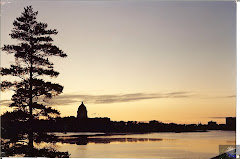There was no pope for 14 months after the martyrdom of St. Fabian because of the intensity of the persecution of the Church. During the interval, the Church was governed by a college of priests. St. Cyprian, a friend of Cornelius, writes that Cornelius was elected pope "by the judgment of God and of Christ, by the testimony of most of the clergy, by the vote of the people, with the consent of aged priests and of good men."
The greatest problem of Cornelius's two-year term as pope had to do with the Sacrament of Penance and centered on the readmission of Christians who had apostatized during the time of persecution. Two extremes were finally both condemned. Cyprian, primate of Africa, appealed to the pope to confirm his stand that the relapsed could be reconciled only by the decision of the bishop (against the very indulgent practice of Novatus).
In Rome, however, Cornelius met with the opposite view. After his election, a priest named Novatian (one of those who had governed the Church) had himself consecrated a rival Bishop of Rome—the first antipope. He denied that the Church had any power to reconcile not only the apostates, but also those guilty of murder, adultery, fornication or second marriage! Cornelius had the support of most of the Church (especially of Cyprian of Africa) in condemning Novatianism, though the sect persisted for several centuries. Cornelius held a synod at Rome in 251 and ordered the "relapsed" to be restored to the Church with the usual "medicines of repentance."
The friendship of Cornelius and Cyprian was strained for a time when one of Cyprian's rivals made accusations about him. But the problem was cleared up.
A document from Cornelius shows the extent of organization in the Church of Rome in the mid-third century: 46 priests, seven deacons, seven subdeacons. It is estimated that the number of Christians totaled about 50,000.
Cornelius died as a result of the hardships of his exile in what is now Civitavecchia (near Rome).
The greatest problem of Cornelius's two-year term as pope had to do with the Sacrament of Penance and centered on the readmission of Christians who had apostatized during the time of persecution. Two extremes were finally both condemned. Cyprian, primate of Africa, appealed to the pope to confirm his stand that the relapsed could be reconciled only by the decision of the bishop (against the very indulgent practice of Novatus).
In Rome, however, Cornelius met with the opposite view. After his election, a priest named Novatian (one of those who had governed the Church) had himself consecrated a rival Bishop of Rome—the first antipope. He denied that the Church had any power to reconcile not only the apostates, but also those guilty of murder, adultery, fornication or second marriage! Cornelius had the support of most of the Church (especially of Cyprian of Africa) in condemning Novatianism, though the sect persisted for several centuries. Cornelius held a synod at Rome in 251 and ordered the "relapsed" to be restored to the Church with the usual "medicines of repentance."
The friendship of Cornelius and Cyprian was strained for a time when one of Cyprian's rivals made accusations about him. But the problem was cleared up.
A document from Cornelius shows the extent of organization in the Church of Rome in the mid-third century: 46 priests, seven deacons, seven subdeacons. It is estimated that the number of Christians totaled about 50,000.
Cornelius died as a result of the hardships of his exile in what is now Civitavecchia (near Rome).
